The DMOZ directory that shaped the Search industry pulled out the plug on March 14, 2017
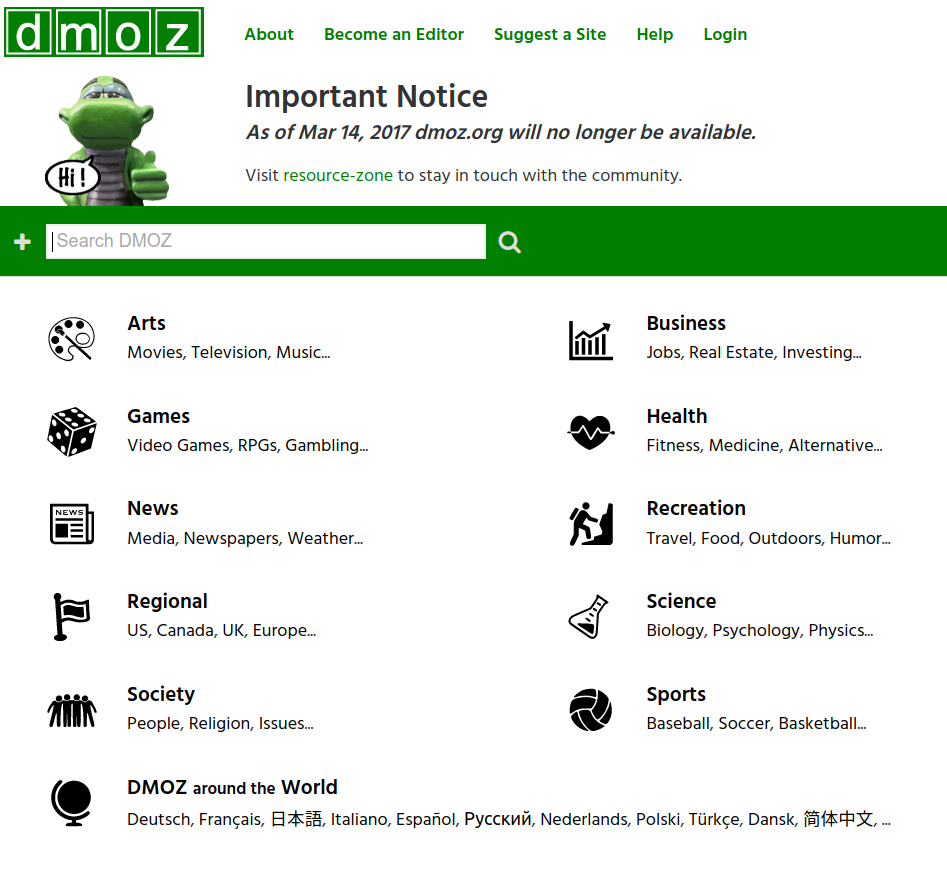
The news is that Google built its (Searchable) Directory (directory.google.com discontinued in 2011) upon the ODP listings structure.
The Search history as we know it today (and the obscene revenue for Google) started with the Directory service, where Google replicated the ODP category structure and piggy backed its search technology, namely its PageRank algorithm.
This PageRank algorithm will later classify the search listings on its search machine and used as the basis for other quality metrics. So, Google and DMOZ were intricately bound together from the start of Google's existence.
For those that do not know the ODP history here is a small brief.
DMOZ was founded in 1998 as Gnuhoo by Rich Skrenta and Bob Truel, both working as engineers for Sun Microsystems. The original category structure of the Gnuhoo directory was based loosely on the Usenet newsgroups then in existence.
Following an argument about the 'GNU' part of the index and the spirit of free software, Gnuhoo was changed to NewHoo to compete with Yahoo!, which faced criticism for its power in the online space and the level of difficulty for sites to be listed. Now it was Yahoo!'s turn to object to the use of the name.
When Netscape Communications Corporation acquired NewHoo, the name changed to Open Directory Project. Back then the Open Directory Project had about 100,000 listings with contributions from nearly 4,500 editors.
The name changed for the last time to DMOZ when the Open Directory Project followed the destiny of Netscape acquired by AOL. The listings were then above one million.
Here is the growth of DMOZ over time.
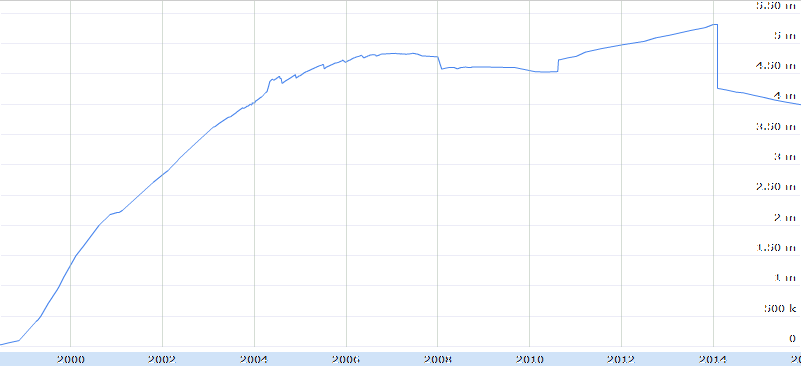
Image Credits: By Windharp - Own work, CC BY-SA 3.0, https://commons.wikimedia.org/w/index.php?curid=4550442
That year (1998) Google was born. Google with its shear algorithm power signaled the start of the end of human curation of websites. Searching power and relevancy was back then in the hands of human-curated directories. The machine-generated trend made Yahoo! jump on the train with its index until its closure in 2014.
Human curation powered DMOZ. Volunteer editors maintained its directory listings. The editors formed groups with different tasks. One group of editors was adding new listings; a second managed the listings, third editing the listings to correct spelling or grammatical errors and checking the outbound links, a fourth cleaning up the directory from spam or policies violation.
The authority that DMOZ had in the eyes of Google led to increased popularity in the SEO community. Expired domains listed on DMOZ became the target of domain hijacking.
DMOZ continued up to its end because of the human capital believing in its scope but with limited traction from the webmasters and marketers.
If you have enjoyed the content please consider making a donation. Thank you!
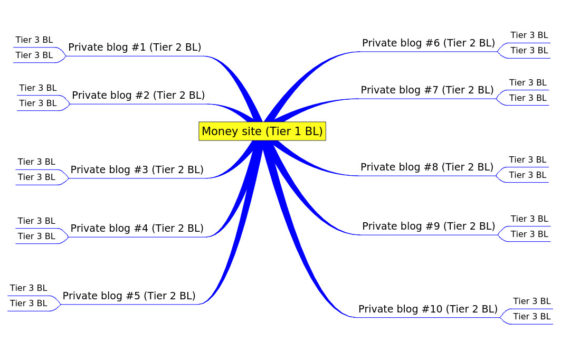
What Is a Private Blog Network (PBN)?
What Is a Private Blog Network: Who needs a PBN; How to Build and Host a PBN; What Is the Value of PBN Links and Where to Buy Them.

How to Re-use Content?
Guide on recycling your content with actionable steps and examples. Recycled content helps with brand reputation, engagement, traffic and reach.
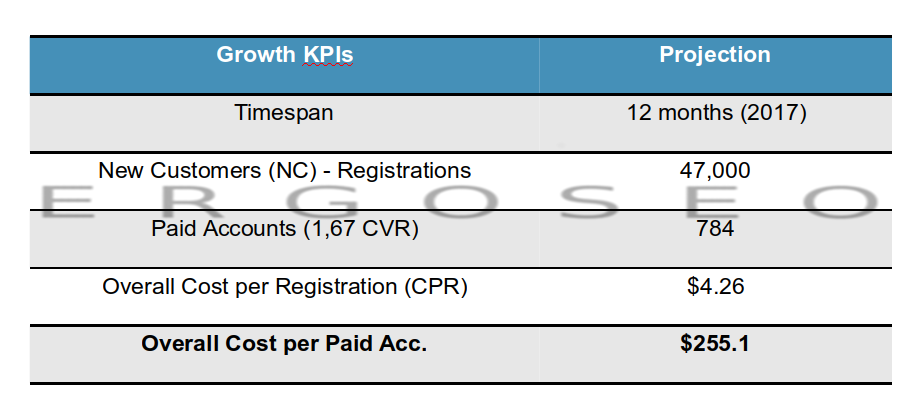
Startup Marketing Plan - Traffic Channels Breakdown
How to segment your audience, set the growth KPIs, use all traffic channels, track performance, calculate costs, build the brand and generate leads.

What is Black Hat SEO? (Video)
Video with 48 Black-hat SEO tactics, what software and online services spammers use, what are the ways to protect your site.

Mobile Responsive Websites and SEO
Why change your current website setup? Are there any gains that justify the costs of making a website mobile-friendly?
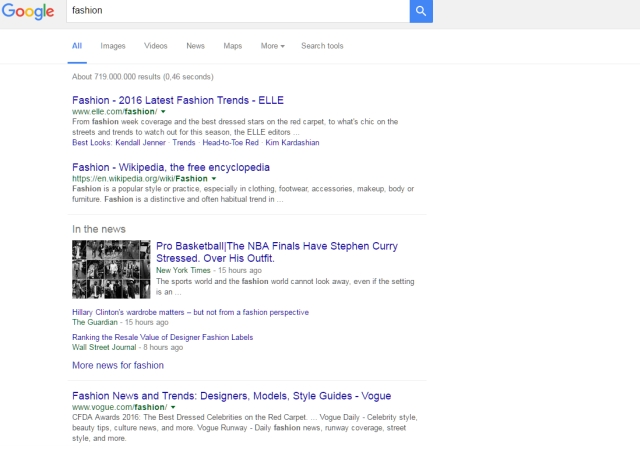
Is there a Big Publisher Domination on Google First Page?
What a case study shows about 16 big brands and their Google first-page domination on money-making terms AKA ‘generic’ keywords in SEO.

How to Pitch to Clients or to SEO Teams
Salespeople always fail when they pitch SEO services. I present a few bullet points on what to avoid when contacting the SEO team.

AMP and SEO
What is the performance of Accelerated Mobile Pages (AMP) overall and concerning organic traffic, rankings and tracking.
